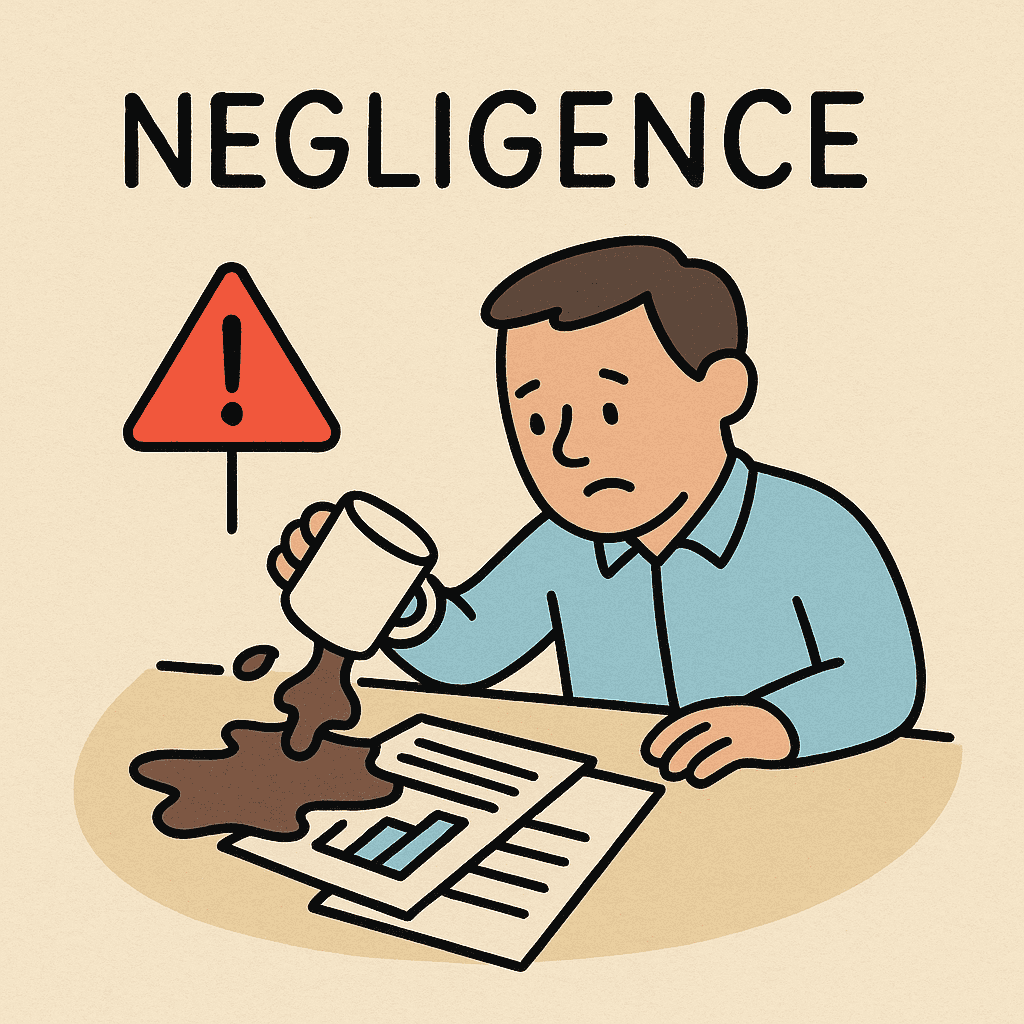Meaning
Negligence means the failure to take proper care in doing something. It refers to careless behavior that results in harm, damage, or loss — often used in legal or professional contexts.
Grammar and Usage
-
Part of Speech: Noun
-
Common pattern:
- negligence in (doing) something — lack of care in performing a task
- act of negligence — a specific instance of carelessness
- gross negligence — very serious or extreme carelessness
Examples of usage patterns:
- negligence in driving
- medical negligence
- He was accused of gross negligence.
Common Phrases
- medical negligence – failure of a doctor to provide proper care
- criminal negligence – carelessness resulting in a crime
- gross negligence – extreme disregard for safety or responsibility
- act of negligence – one careless act or omission
- negligence claim – a lawsuit based on negligence
Collocations
- show / demonstrate negligence
- accused of negligence
- found guilty of negligence
- due to negligence
- negligence in duty / work
Examples
- The fire was caused by the worker’s negligence.
- The company was sued for medical negligence.
- The teacher’s negligence led to a serious accident on the field trip.
- She lost her job due to negligence in handling client data.
- The court ruled that the hospital was guilty of gross negligence.
- An act of negligence can have serious consequences in the workplace.
- His negligence in maintaining the machine caused a breakdown.
- Negligence in safety procedures can endanger lives.
Synonyms or Related
- carelessness
- recklessness
- neglect
- inattention
- omission
Antonym
- diligence
- attentiveness
- carefulness
- conscientiousness
